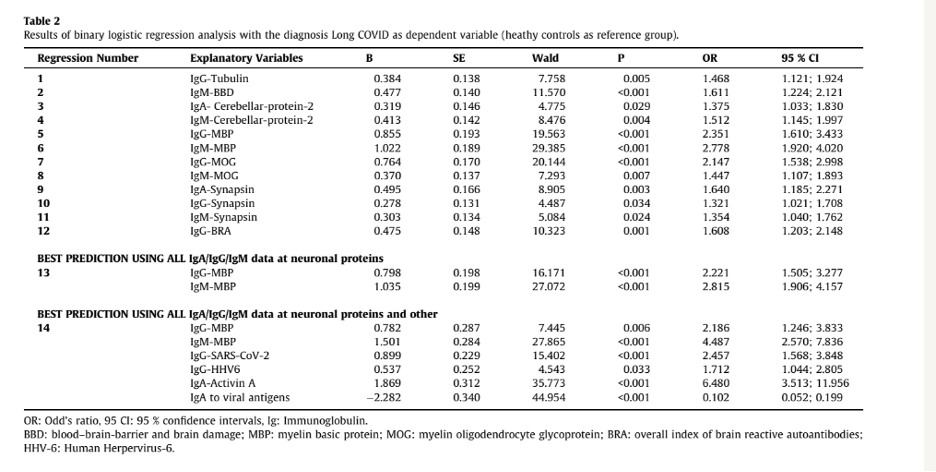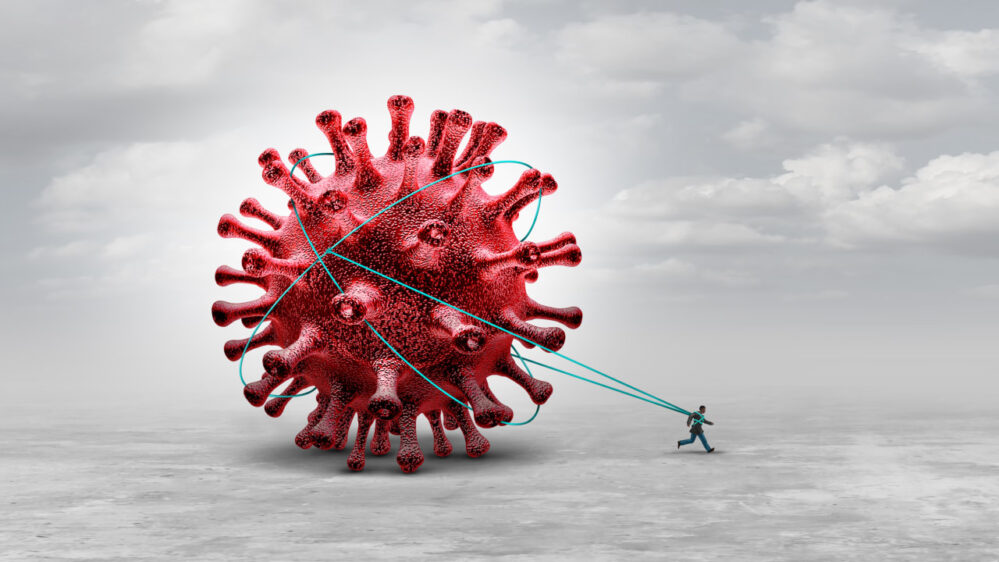Autoantibodies directed against neural targets have most predictive power.
Many studies have found autoantibodies directed at neural targets in people with both acute COVID-19 and Long COVID. However, few of these studies have determined if the autoantibodies have agonist or antagonist functions, and none have documented a role for the autoantibodies in causing the symptoms of Long COVID.
A new retrospective case control study including 90 Long Covid patients and 90 healthy controls assessed IgG, IgM and IgA antibodies against a variety of neural targets, as well as IgG/IgM/IgA antibodies recognizing SARS-CoV-2 antigens, HHV-6 antigens, HHV-6-duTPAse, Epstein-Barr Virus (EBV) antigens, and activin-A. Data regarding the sensitivity and specificity of these assays is not presented, nor were studies of functional agonist or antagonist properties reported.
The patients were followed for many months, and those who developed Long COVID (WHO case definition) were identified. The investigators then compared the antibody profiles during acute COVID-19 in those who went on to develop Long COVID to the profiles in those who did not, to see if any profiles predicted the development of Long COVID.
The study found that:
- IgG and IgM against myelin basic protein (MBP) were the most robust predictors of Long COVID.
- A model encompassing SARS-CoV-2, IgG-HHV-6 and IgG- Activin A combined with IgA-HHV-6 antigens was a strong predictor of Long COVID, as shown in the table, below.

- IgM to HHV-6 antibodies were significantly correlated with IgA/G/M directed at tubulin, G/IgM-BBD, IgA/IgG/IgM-CP2, IgM-MOG, IgA/IgM-NFP, IgG/IgM-synapsin, and IgG-BRA (neuronal autoantibodies). While this correlation could indicate a role for HHV-6 in stimulating the production of these autoantibodies, it does not prove such a connection.
This is the latest study to find evidence of autoantibodies to multiple different neural targets, as well as serological patterns related to herpesvirus and SARS-CoV-2 infection, in people with acute COVID-19 who then go on to develop Long COVID. The question remains whether the neural autoantibodies and antiviral antibodies have anything to do with the symptoms of Long COVID.
Read the full text: Almulla 2024

